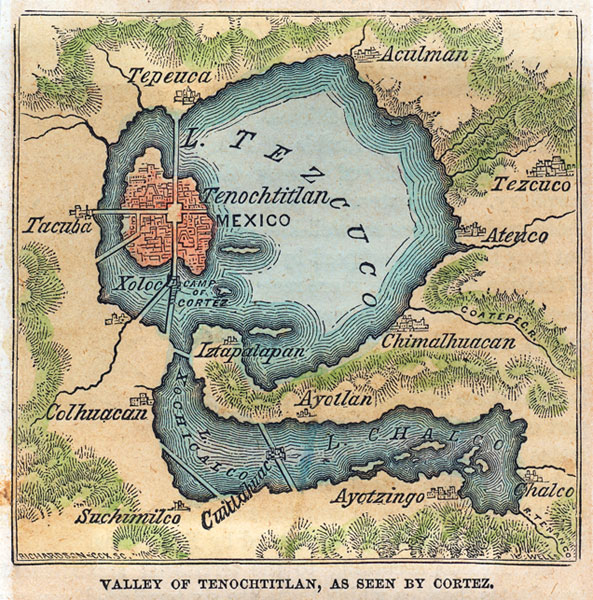You are here
Aztec Mendoza Resource Set
The resource set includes additional sources to accompany the Primary Source Set and Lesson Ideas to help extend lessons and further student understanding. Primary Source Analysis Worksheets are available on the Elementary Primary Source Sets main page.
Aztec Codex Mendoza c. 1541 (Image)
The Mendoza Codex combines Aztec pictograms with Spanish text.

The Frontispiece of the Aztec Codex Mendoza c.1541. (Image)
The Codex contains a wealth of information about the Aztecs and their empire. For instance, the Codex’s frontispiece relates information about the organization and foundation of the Aztec capital, Tenochtitlan.
Section 1 of the Codex Mendoza c. 1541 (Image)
This section of the Codex shows the division of Tenochtitlan into four parts which was intended to mirror the organization of the universe, believed to be four parts aligned with the four cardinal directions (north, east, south, west)
Section 2 of the Codex Mendoza c. 1541 (Image)
This section of the Codex shows two scenes of military conquest. The artist emphasizes the military power of the Aztecs by showing two soldiers in hierarchic scale: they physically tower over the two men they defeat. The Aztec warriors are also identified by their shields.
Topographical map of Tenochtitlan (Mexico City) and its surroundings areas. (Image)
This topographical map of Mexico City and its surroundings dates from around 1550, some three decades after the conquest of the Aztec capital of Tenochtitlán by Hernán Cortés in 1521.
The Conquest of Mexico, 1519-1521 (Image)
From The Historical Atlas by William R. Shepherd, 1923.
Map of the Valley of Tenochtitlan (Map)
Map of the Ancient Valley of Mexico, shows the capital city of Tenochtitlan.
The Mexican flag shows the same eagle symbol as the Codex Mendoza.
Officially adopted on March 15, 1877.











Connect With Us





